Affiliate Disclaimer
Some links in this article are affiliate links. We may earn a small commission if you make a purchase through these links, at no extra cost to you. We only recommend products we find useful to our readersHave you ever felt mucus traveling down your throat?
Post-nasal drip can be bothersome and irritating. This article discusses effective post-nasal drip remedies that deliver results.
What is Post Nasal Drip?

Excess mucus can build up in the back of the throat and cause post-nasal drip. This can produce pain, irritability, coughing, and frequent throat clearing. Symptoms include sore throat, foul breath, and a lump in the throat.
Allergies frequently cause post-nasal drip by triggering excessive mucus production.You need to find the underlying reason to achieve effective relief and treatment.
Some standard post-nasal drip causes include:
- Cold or freezing temperatures
- Sinus infections
- Pregnancy
- Consumption of excessively spicy foods
- Viral infections causing cold and flu
- Birth control or blood pressure medications
Home Remedies for Post Nasal Drip
1. Apple Cider Vinegar Gargle to Stop Post Nasal Drip

The combination of apple cider vinegar’s anti-inflammatory (R) and antibacterial (R) properties help eliminate excess buildup of mucus in the throat.
What to do?
- Mix one tablespoon of apple cider vinegar into glass of warm water
- Gargle with this every morning to break down the mucus buildup
- Rinse your mouth with normal water
How often?
- Twice daily
2. Honey to Stop Post Nasal Drip
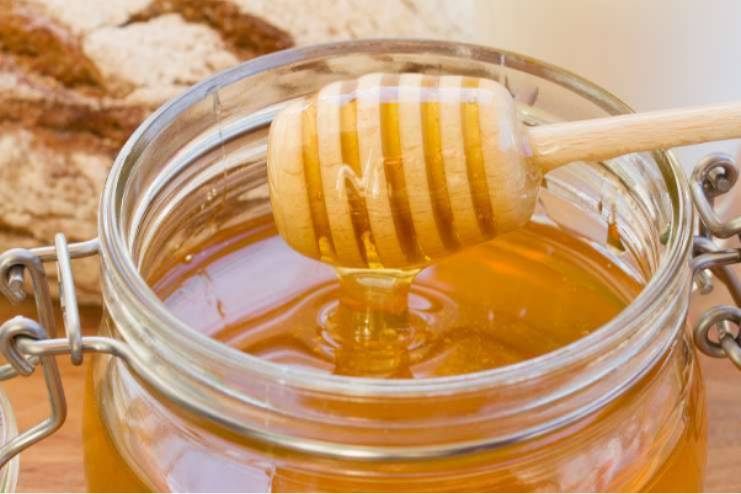
Honey’s decongestant and antimicrobial (R) properties help fight the post-nasal drip symptoms and eliminate them for good. It also has effective anti-inflammatory (R) properties, which further aid in getting rid of post-nasal drip.
What to do?
- Mix one tablespoon of honey in a glass of warm water
- Drink throughout the day
How often?
- 2-3 times every day
3. Colloidal Silver to Stop Post Nasal Drip
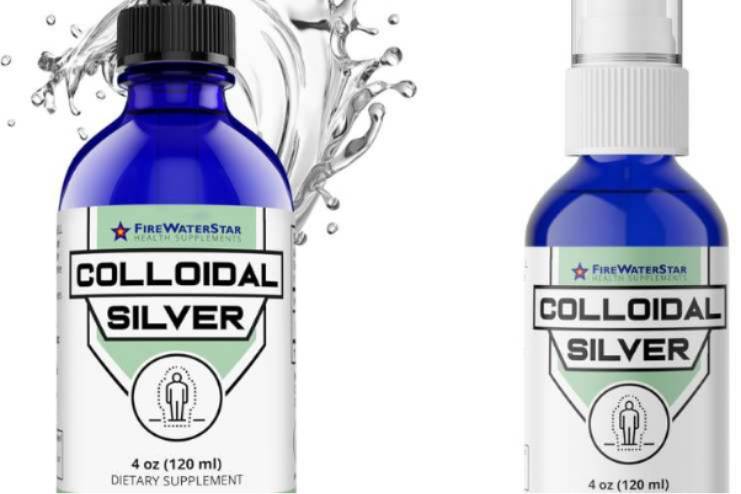
Colloidal Silver is one of the best post-nasal drip treatments. Despite this, using this treatment excessively can have negative implications on the body’s metabolism. Excess dosage can cause silver poisoning.
What to do?
- Consult a doctor about the dosage suitable for your health and requirements.
How often?
- As prescribed by the physician
4. Salt Water Gargle to Stop Post Nasal Drip
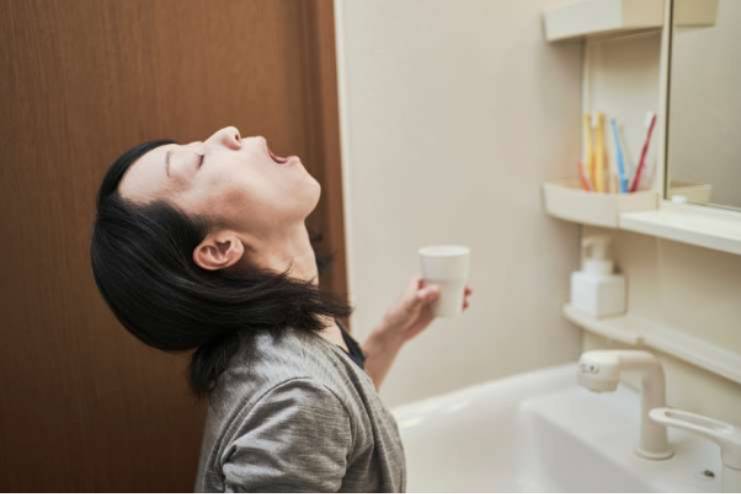
Yet another effective remedy for post-nasal drip treatment is a saltwater gargle. The salt’s mind-antimicrobial properties (R) help fight off any infection in the throat that could be contributing to the excess mucus secretion. The water also helps hydrate the throat and prevent irritation.
What to do?
- Mix one teaspoon of salt in a glass of warm water
- Stir till the salt dissolves completely
- Gargle with this water till you run out of it
- Make sure to avoid swallowing the water and gargle and rinse your mouth with it
- Rinse your mouth with normal water at the end
How often?
- 2-3 times daily
5. Garlic to Stop Post Nasal Drip
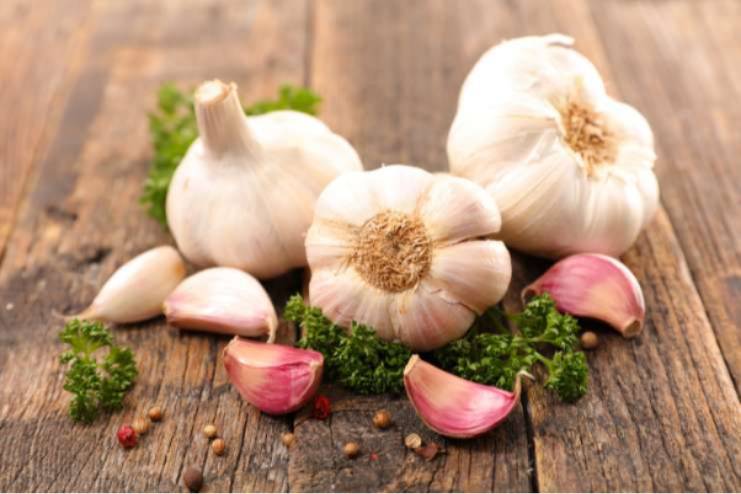
Garlic has an active compound known as Allicin, which imposes its beneficial properties to stop post-nasal drip naturally. It consists of effective antimicrobial (R) and anti-inflammatory (R) properties which collectively help in getting rid of the symptoms of post-nasal drip.
What to do?
- Crush 2-3 cloves of garlic and extract the juice
- Add ½ teaspoon of honey to it and consume it raw
How often?
- Once daily
6. Intake of More Fluids to Stop Post Nasal Drip

It might come off as a shock, but lack of hydration (R) in the body often triggers the secretion of more mucus, which contributes to post-nasal drip. That being said, if you are suffering from any form of infection (R) or even from the common cold and cough, you will most likely end up feeling dehydrated.
What to do?
- Drink more fluids to keep yourself hydrated.
- It can be anything – from water tonics to juices as well.
How often?
- Daily
7. Turmeric to Stop Post Nasal Drip
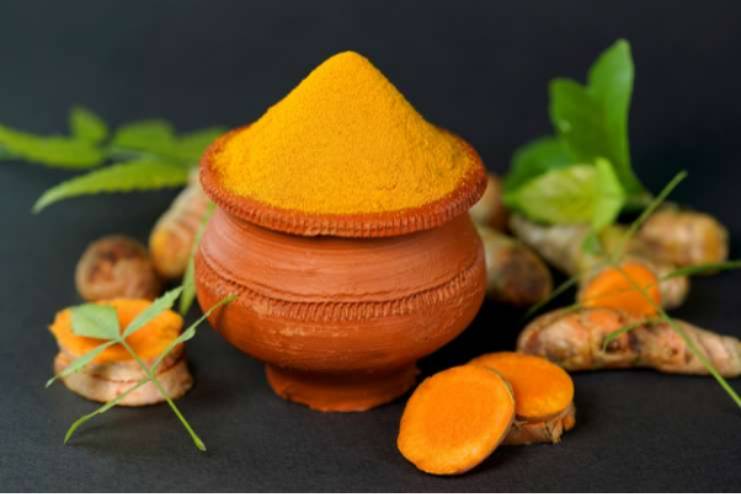
Turmeric has a multifaceted approach to post-nasal drip treatment because of its antiseptic (R), antimicrobial (R), and anti-inflammatory (R) properties.
What to do?
- Mix ½ teaspoon of turmeric powder into a glass of warm milk
- Drink this milk before bed at night
How often?
- Every night
8. Oil Pulling to Stop Post Nasal Drip
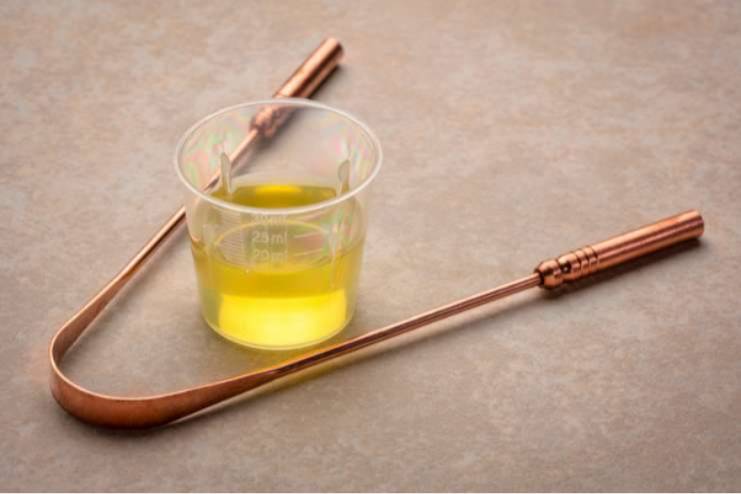
How does oil pulling help treat post-nasal drip? Well, this remedy is quite beneficial in treating the condition because of the antimicrobial (R) as well as anti-inflammatory properties (R) (R) it imposes on the body.
What to do?
- Take a heaped tablespoon of coconut oil, olive oil, or sesame oil, whatever you prefer, and swish it in your mouth for 10-15 minutes straight.
- Spit the oil out after 15 minutes and rinse your mouth with warm water.
How often?
- Once daily
9. Vicks Vapour Rub to Stop Post Nasal Drip
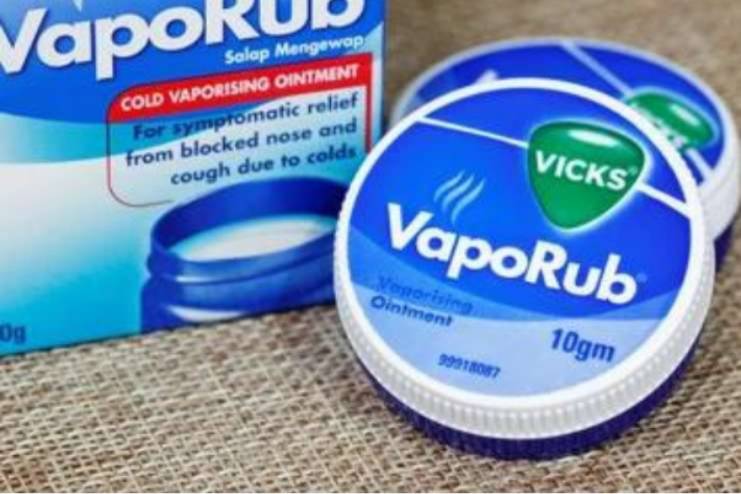
Vicks Vapour Rub is another post-nasal drip remedy. It’s most effective when the individual has symptoms caused by a cold or cough. This menthol rub helps clear out air passages and stops the excess secretion of mucus that often contributes to post-nasal drip. It also has warming properties that help treatment. .
What to do?
- Scoop some of the ointment with your fingers and apply it on your chest and throat
- Do this at night and leave the rub overnight
How often?
- Do this daily before bed at night
10. Best Teas to Stop Post Nasal Drip

Teas effectively fight off the signs and symptoms of colds, coughs, and post-nasal drip. It’s necessary to drink it warm, not cold or scalding hot, for optimum benefits.
Green tea is loaded with antioxidant (R), anti-inflammatory (R), and antimicrobial (R) properties, which have beneficial impacts in getting rid of post-nasal drips. Not just that, the catechins and EGCGs in green tea aid in boosting immunity.
What to do?
- Steep a green tea bag in a cup of hot water
- Let it steep for 5 minutes
- Add some lemon and honey to enhance its taste
- Drink this warm
How often?
- 2-3 times daily
- Ginger Tea
Ginger consists of the active compound Gingerol, which has effective antibacterial (R) and anti-inflammatory (R) properties. These properties help eliminate infection and any inflammation that could be contributing to post-nasal drip.
What to do?
- Boil some water in a pot
- Add some crushed ginger to it
- Let it boil for 5-10 minutes
- Strain this water into a teacup and add a tea bag of your choice
- Let that steep for 5 minutes
- Drink this warm
How often?
- 2-3 times daily
11. Juices to Stop Post Nasal Drip

Juices are yet another effective cure for post-nasal drip. Juices help restore the necessary vitamins and minerals required for a fast recovery from this condition.
- Orange Juice
Oranges contain natural and beneficial anti-inflammatory (R) and antioxidant (R) properties. The vitamin C content helps boost overall immunity to help alleviate post nasal drip.
What to do?
- Extract the juice of 2-3 oranges and drink it.
How often?
- 1-2 glasses every day
The usage of aloe vera in alternative medicine is vast and vivid. Aloe vera juice is actually quite beneficial for treating post nasal drip. The juice’s antimicrobial (R) properties help relieve the infection and the associated cough, while the anti-inflammatory (R) properties help treat any form of inflammation in the nasal pathway.
What to do?
- Buy organic aloe vera juice from the market because it is often hard to make the same at home
- Drink half a glass of aloe vera juice daily
How often?
- 1-2 times daily
- Pineapple Juice
Pineapple consists of an active compound, bromelain, which imposes not just antimicrobial (R) but anti-inflammatory (R) properties on its consumption. Combining these properties helps subside post-nasal drip symptoms and cures them from within.
What to do?
- Extract the juice of half a pineapple.
- Drink this fresh. You can also add a dash of ginger and cayenne pepper to enhance the taste and also for beneficial effects in the post-nasal treatment.
How often?
- 1-2 glasses of the juice every day
- Lemon Juice
Vitamin C is the main component in lemon juice that helps treat post-nasal drips. The combined antimicrobial (R) and antioxidant (R) properties help fight off infection and treat the condition simultaneously. It also helps boost immunity, which has pronounced benefits in getting rid of the remnants of infection in the throat.
What to do?
- Add 1-2 tablespoons of lemon juice to a glass of warm water
- Add one teaspoon of honey to it to enhance the taste
- Drink this warm
How often?
- 1-2 times daily
12. Essential Oils to Stop Post Nasal Drip
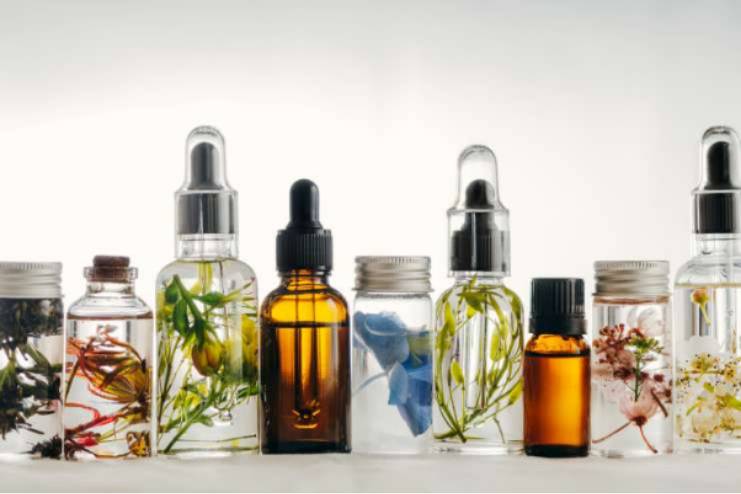
Essential Oils also play a key role in treating postnasal drip. Because of this multifaceted treatment, it helps eliminate the signs and symptoms associated with throat or sinus infection or cold and cough.
Lavender oil is loaded with beneficial antimicrobial (R) and anti-inflammatory (R) properties that help effectively eliminate postnasal drip symptoms. It also has effective soothing properties that help cure the condition effectively.
What to do?
- Add a few drops of lavender oil to coconut oil or any carrier oil of your choice
- Rub it over your chest, back, and throat
- Leave it overnight
How often?
- Every night
Oregano Oil is beneficial because it helps cleanse the sinuses and strengthen the nasal membranes (R), which help get rid of signs and symptoms of nasal drip faster and more effectively.
What to do?
- Mix few drops of oregano oil with any of the carrier oil
- Rub it on your chest, back as well as throat
- Leave it on overnight
How often?
- Every night before bed
Peppermint Oil has combined antimicrobial (R), anti-inflammatory (R), and expectorant (R) properties, which all help in getting rid of colds and coughs and alleviate the signs and symptoms associated with postnasal drip.
What to do?
- Add a few drops of the peppermint oil to any carrier oil like almond or even coconut oil
- Rub it all over the chest, back, and throat region
- Leave it overnight
How often?
- Every night before bed
Importance of Addressing Post Nasal Drip
Since post-nasal drip can impact everyday activities and general well-being, treating the issue is essential to maintaining quality of life. Constant post-nasal drip frequently causes discomfort and irritation in the throat, making coughing and clearing more common. Sleep disturbances like this might cause exhaustion and lower productivity. Bad breath and sore throat might also arise from the ongoing irritation. Untreated post-nasal drip can worsen symptoms and cause long-term consequences for people with underlying illnesses such as allergies or sinus infections. Good care reduces the severity of these symptoms, enhances daily functioning, increases general comfort and sleep quality, and lowers the risk of complications or subsequent infections.
Symptoms of Post Nasal Drip
The symptoms of postnasal drip are often confused with those of normal cold and flu symptoms.
Some common symptoms of post-nasal drip include:
- Sore throat and irritation and scratchiness in the throat
- Persistent feeling of nausea because of mucus in the stomach
- Need to clear the throat frequently
- Foul breath
- Worsening condition of the cough during nighttime
How To Prevent Post Nasal Drip?
Humidifier
One of the easiest and most important ways to prevent the possible contraction of post-nasal drip is to keep the temperature around the house warm and humid to prevent the possibilities and causes of nasal drip. A humidifier or vaporizer actually does help increase the humidity inside your home and keep you healthy.
Yoga
Even a few types of yoga have beneficial impacts on keeping the signs and symptoms associated with colds and coughs at bay. Balasana, Sasangasana, etc., are a few that have beneficial impacts on one’s overall health.
Avoid dairy
Consuming dairy while suffering from a cold can often instigate the problem associated with postnasal drip. The dairy boosts the secretion of excess mucus, aggravating the condition even further.
Stay hydrated
Maintaining fluid balance is key to maintaining proper mucus levels. Often, a lack of hydration triggers the secretion of mucus, which is not something you want to experience.
Get Allergies checked out
As allergies are one of the most common causes of postnasal drip, it is beneficial to get the same checked out by a medical professional to avoid the contraction in the future. If you easily suffer from allergies, just ensure that you stay clear of allergens like dust, pollen, etc.
Avoid caffeine
Another common preventive tip is to avoid the consumption of excess caffeine in the form of tea or coffee because it tends to have a direct relation with the secretion of mucus, which is not favorable if you are looking for ways to avoid postnasal drip.
Avoid smoking
Excess smoking often tends to contribute to mucus secretion and even the nasal and air passages, which can usually negatively affect the condition.
How Long Does Post Nasal Drip Last?
Even though there is not much affirmation about how long the postnasal drip lasts, it is believed that it lasts from a week to 10 days on average..
It depends on the medications and remedies being administered as well as the person’s immunity.
How To Sleep With Post Nasal Drip?
Scientific studies have proven that sleeping posture influences the overall condition of post-nasal drip. Therefore, knowing the best sleeping positions is essential.
Prop the bed
This is possibly one of the most effective methods to help you sleep better and relieve post-nasal drip. Prop up the headboard of the bed and then sleep on the back.
Propping the head
If you don’t own an adjustable bed, the next best thing to do is to do something to get your head propped. If your head remains propped, you may be able to sleep better than you think. Get some extra pillows, fluff them, and snuggle up under the covers. Make sure that the pillows you are opting for are hypoallergenic because allergies often aggravate the situation even further.
Sleep on one side
Often, sleeping on one particular side throughout the night helps prevent post-nasal drip.
Avoid sleeping on your stomach.
Sleeping on the stomach and even on the back without any elevation worsens the condition associated with the nasal drip. Make sure that even if you are sleeping on your stomach, there is something under your abdomen to keep you elevated and to avoid the deterioration of the condition.
When to Seek Medical Help
Although you can effectively treat post-nasal drip at home, there are times when you may need to seek expert medical attention. When symptoms don’t go away after a few weeks at home, there can be a deeper problem that has to be addressed by a doctor. Severe or deteriorating symptoms, such as a chronic cough, breathing difficulties, or chest pain, are warning signs. If you have a high fever, green or yellow mucus, or an unpleasant odor with post-nasal drip, you may have a bacterial infection requiring antibiotic treatment. It’s also important to see a doctor if you frequently get sinus infections, lose weight without explanation, or have excruciating headaches. Early intervention will ensure better health outcomes and avoid complications.
-
Oct 2018Written by Somapika D
-
Sep 2024Edited by Ankita
In this Article




















